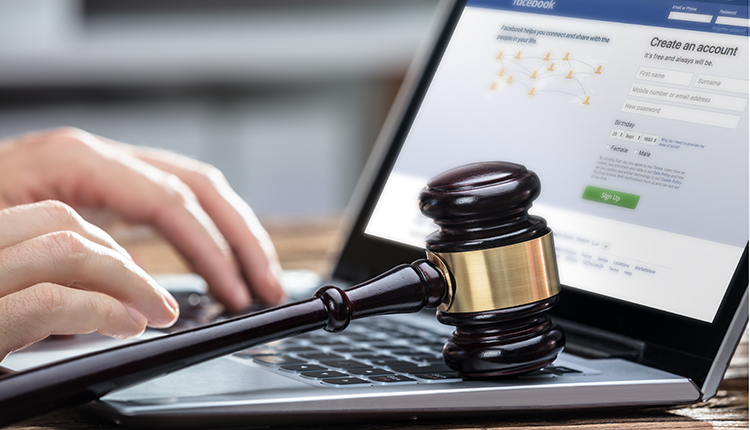
Join the Crowd and Sue Facebook
Do you remember when, nine years ago, Facebook CEO and entrepreneurial boy wizard Mark Zuckerberg stood up and stated that individual privacy was no longer fashionable and, therefore, his company didn’t need to uphold it?
How time – and our civil liberties – fly. In January 2010, Zuckerberg spoke in San Francisco at the Crunchie awards, an industry honor given out from 2007 to 2017 by several technology blogs to the Silicon Valley companies and venture capitalists they covered.
“People have really gotten comfortable not only sharing more information and different kinds, but more openly and with more people. That social norm is just something that has evolved over time,” the youthful social media leader informed the world.
Facebook, in case you forgot, launched on February 4, 2004. In those early days of getting the public used to information-sharing on a mass scale never before seen, mainstream media was still pushing Facebook as a harmless, feel-good college project rather than the covert data-gathering machine it has proven to be. Zuckerberg often recalled his salad days in the Ivy League (a favorite recruiting ground of U.S. intelligence agencies):
“When I got started in my dorm room at Harvard, the question a lot of people asked was, ‘Why would I want to put any information on the internet at all? Why would I want to have a website?’ Then, in the last 5 or 6 years, blogging has taken off in a huge way, and just all these different services that have people sharing all this information.”
Zuckerberg’s comments were meant to calm defenders of civil liberties who became irate after Facebook took it upon itself to change all user accounts’ default privacy setting to public in December 2009. From that point forward, users have had to find and switch the Facebook setting from public to private.
Since many users were never aware of this change – or didn’t care or couldn’t find the setting inside their Facebook account – an incredible amount of personal information became accessible to third-party individuals and groups, including Dirty Rotten Spammers and marketing firms intent on targeting their advertising to susceptible consumers, easily identified by their Facebook posts and self-reported activities.
Ten years ago, the American Civil Liberties Union (ACLU) used the terms “flawed” and “worrisome” when describing the summary changes Facebook made to its user privacy protocols.
A pro-rights group for internet users called the Electronic Frontier Foundation (EFF) acknowledged that some of the new user policies and procedures did help some users but other alterations were “plain ugly.”
Kevin Bankston, a senior attorney with the EFF, blogged:
“These new ‘privacy’ changes are clearly intended to push Facebook users to publicly share even more information than before. Even worse, the changes will actually reduce the amount of control that users have over some of their personal data.”
How prophetic those words were.
The ACLU’s technology and civil liberties policy director Nicole Ozer said:
“Before the recent changes, you had the option of exposing only a ‘limited’ profile, consisting of as little as your name and networks, to other Facebook users—and nothing at all to internet users at large. Now your profile picture, current city, friends list, gender, and fan pages are ‘publicly available information,’ which means you have no way to prevent any other Facebook user from viewing this information on your profile.”
In response to an ACLU petition with over 43,000 signatures from “concerned Internet users,” Facebook revised its privacy policy and made modifications to its profile and publication privacy controls. The company also introduced a “Transition Tool” to help users find and set restrictive privacy settings.
All that effort seems rather moot now, in light of the many data hacks Facebook users have suffered in the past few years. The Cambridge Analytica third-party data theft is the highest-profile incident to date, but Facebook has failed so miserably to protect its inventory – user information – that the tech and social media giant is now playing defense in court against a number of significant class action lawsuits being brought by Facebook account holders who believed their online rights were trampled.
By the end of April 2018, Facebook had been socked with “over three dozen class action lawsuits” such as this one: PICHA & CASHON vs. FACEBOOK & CAMBRIDGE ANALYTICA which seeks compensation for “the ‘wrong’ Zuckerberg and Facebook have admitted by disregarding the very privacy safeguards they promised users.”
On February 1, 2019, U.S. District Judge Vince Chhabria, in San Francisco, decided that users can sue Facebook for allowing their private data to be stolen by third-parties, including Cambridge Analytica, because “The injury is the disclosure of private information.”
Facebook users abroad are also filing class action suits for invasion of privacy and other civil rights. One has to wonder how long the social media flagship will be able to stay afloat after all these numerous cash payouts – past, present, and future – are tallied?
Are these the end days for Facebook? According to Edison Research, Facebook users are closing their account “by the millions” after the shocking realization that Zuckerberg and company don’t give a toot about us, the users, their most valuable (and only) asset.

Recent Comments